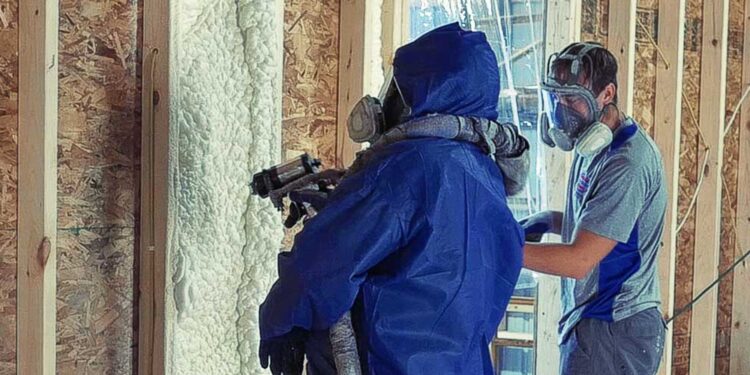In a world where energy efficiency and sustainability are becoming increasingly important, one often overlooked aspect of creating an environmentally-friendly and cost-effective living or working space is insulation. Professional insulation not only contributes to a comfortable and cozy environment but also plays a pivotal role in reducing energy consumption and lowering utility bills. In this comprehensive guide, we will delve deep into the world of professional insulation, exploring its benefits, types, installation process, and how it can make your space truly optimized.
Understanding the Significance of Insulation
Before we dive into the specifics, let’s understand why insulation is a crucial element in optimizing any living or working space.
Energy Efficiency
Energy efficiency has become a buzzword in recent years, and for good reason. Proper insulation acts as a barrier against heat transfer, keeping your space warm in the winter and cool in the summer. This translates to reduced reliance on heating and cooling systems, resulting in significant energy savings and a reduced carbon footprint.
Cost Savings
The connection between insulation and cost savings cannot be overstated. By maintaining a consistent temperature indoors, insulation lessens the strain on your HVAC system, prolonging its lifespan and reducing the need for repairs or replacements. Lower energy bills are also a tangible benefit of efficient insulation, putting more money back in your pocket.
Comfort and Well-being
Comfort is a top priority in any space, whether it’s your home or workplace. Insulation provides a comfortable indoor environment by preventing drafts and temperature fluctuations. This leads to improved well-being, productivity, and overall satisfaction.

Read more home renovation tips here.
Types of Insulation
Insulation materials come in various forms, each with its unique properties and advantages. Here are some common types:
Fiberglass Insulation
Fiberglass insulation is one of the most popular choices due to its affordability and effectiveness. It consists of tiny glass fibers that trap heat and prevent its transfer. It’s widely used in attics, walls, and crawl spaces.
Spray Foam Insulation
Spray foam insulation is known for its superior sealing properties. It expands upon application, filling even the smallest gaps and cracks. This type of insulation is highly efficient and can be used in various areas, including roofs and walls.
Cellulose Insulation
Made from recycled paper products, cellulose insulation is an eco-friendly option. It’s treated to resist fire, mold, and pests, making it a safe and sustainable choice.
Radiant Barrier Insulation
Radiant barrier insulation reflects heat away from your living or working space. It’s particularly effective in hot climates and can significantly reduce cooling costs.
The Insulation Installation Process
Installing insulation is a specialized task that requires professional expertise. Here’s a brief overview of the installation process:
Assessment
A professional insulation contractor begins by assessing your space’s insulation needs. They inspect existing insulation, identify problem areas, and determine the most suitable insulation type.
Preparation
Before installation, your space is prepared. This includes clearing any obstructions, sealing gaps, and ensuring proper ventilation.
Installation
The chosen insulation material is installed meticulously. This involves placing it in walls, ceilings, or floors, depending on the specific requirements.
Quality Check
After installation, a thorough quality check is conducted to ensure that there are no gaps or inconsistencies in the insulation.
The Benefits of Professional Insulation
Now that you understand the importance of insulation and the installation process, let’s explore the multitude of benefits it offers:
Energy Efficiency and Savings
Professional insulation significantly reduces energy consumption, leading to lower utility bills and a reduced environmental impact. Over time, the savings on energy costs can far outweigh the initial installation investment.
Enhanced Comfort
Insulation creates a consistent and comfortable indoor environment. No more shivering in winter or sweltering in summer – you’ll enjoy a space that’s just right, year-round.
Noise Reduction
Insulation isn’t just about temperature control; it also acts as a sound barrier. This is particularly important for offices or homes in noisy environments.
Increased Property Value
Investing in professional insulation can boost your property’s value. Potential buyers or renters are often willing to pay more for a well-insulated space with lower operating costs.
Conclusion
In conclusion, professional insulation is a game-changer when it comes to optimizing your living or working space. It offers a multitude of benefits, from energy efficiency and cost savings to enhanced comfort and increased property value. To achieve these advantages, it’s essential to consult with experienced insulation professionals who can assess your specific needs and provide the most suitable insulation solution.








Comments 1